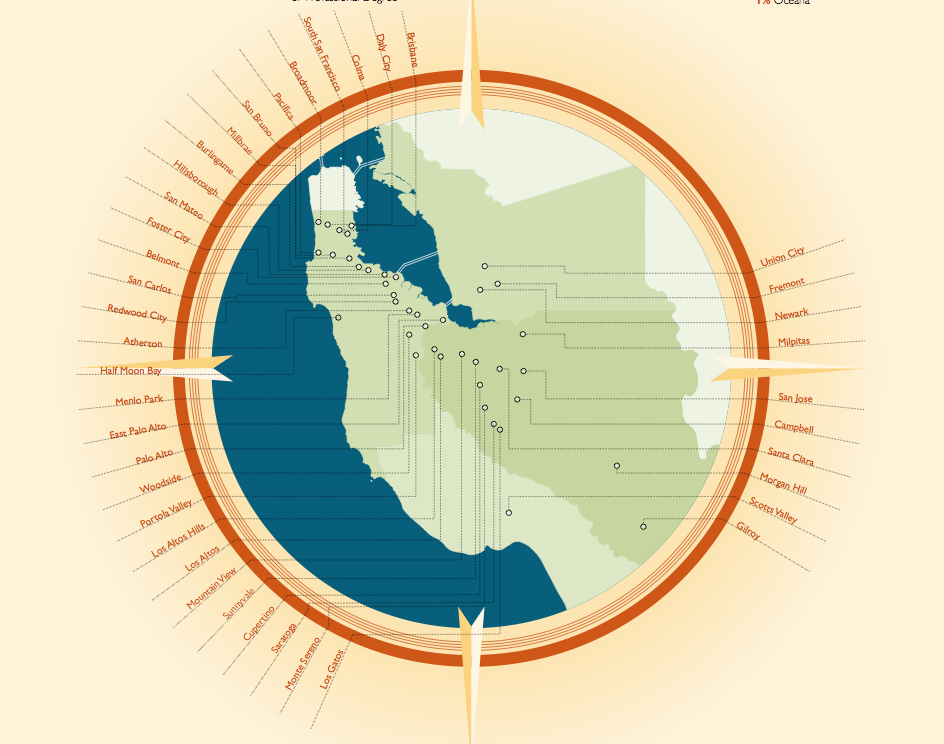
SAN JOSE, Feb. 10 – A property tax law in California passed over 30 years ago is continuing to have a far-reaching and negative impact on the state’s education system, said a group of economists and thinkers at the 2012 State of the Valley Conference today.
Proposition 13 passed in 1978 with overwhelming support. It capped property taxes for residents at 1 percent and limited increases in assessed home values to a maximum of 2 percent per year. When ownership changed, taxes could be reset at 1 percent of the sales price.
The proposition also prohibited local governments from going to voters to approve property tax increases, making it nearly impossible for schools to get badly needed funding. It also gave the state control of allocating local property taxes, creating a divide between local tax revenue and local public services, according to the Joint Venture Silicon Valley Index report released earlier this week.
Now, California ranks in the bottom five states for state spending per pupil.
“We used to be in the top three,” said Dr. Emmett Carson, Chief Executive Officer and President of the Silicon Valley Community Foundation. “Now we’re at 46, and Prop. 13 had an impact on that.”
The Foundation, along with Joint Venture Silicon Valley, sponsored today’s conference and publishes the annual State of the Valley Index, a report assessing the region’s economic and social health.
According to the Index, California ranks in the bottom two states in number of teachers per student; last in librarians per student; and next to last in counselors per student. And 36 percent of students in Silicon Valley do not meet the basic University of California and California State University requirements, said Russell Hancock, president and Chief Executive Officer of Joint Venture Silicon Valley.
Hancock, Carson and others who spoke on a panel addressing a special Analysis to the Index on Proposition 13, said it no longer serves Silicon Valley’s needs. Carson said that negative impacts of the proposition have been especially felt during the recession, adding that property values are being assessed at lower rates, a far cry from the high values that public services in the state previously depended upon.
The panelists added that in order to remain competitive, Silicon Valley needs to provide good public services, including high-performing schools to attract companies and their employees. “If we continue on this path,” Carson said, “companies won’t want to locate here.”
Stephen Levy, director and senior economist at the Center for Continuing Study of the California Economy, stressed that for 30 years, property tax revenue was not a problem, but said that in the current economy, lower taxes bode poorly for public services like education.
He added that poorly performing schools are a negative drag on the local economy.
“It isn’t just about providing safety net services or education services,” he said. “If we threaten that, it comes back to bite the economy.”
Former California State Senator and Secretary of State Bruce McPherson said that local governments need to be given more control to raise revenues. He added that the “one size fits all” mentality does a disservice to the diversity of the state.
Silicon Valley is renowned for its ability to attract world-class businesses and innovators, and the area’s universities graduate thousands of young entrepreneurs every year. But with the current property tax system, many of them cannot afford to stay in California as they are priced out of home ownership, the panelists said.
According to Levy, it is especially troubling that people starting new businesses, those engaging in the entrepreneurial spirit so synonymous with Silicon Valley, pay the most.
Inconsistencies in taxation between commercial and residential property, as well as Proposition 13 tax inconsistencies, penalize new home and business owners, the panelists said.
Lenny Goldberg, executive director of the California Tax Reform Association, agreed that local government funding needs to be addressed, and said collection of data about local property taxes is key to facilitating a sustained discussion about reforming them.
Ultimately, said the panelists, any reforms are going to require sustained attention of the state’s voters.
Goldberg added that the state must address land valuation problems. He said: “It may be years in coming. …But it [reassessing Proposition 13] has to be part of the solution.”
Kathleen Chaykowski contributed to this report.

The poor quality of public services and the high cost of renting also discourages people from staying in the area. Expensive housing, poor education for one’s children–these discourage people from staying in California.